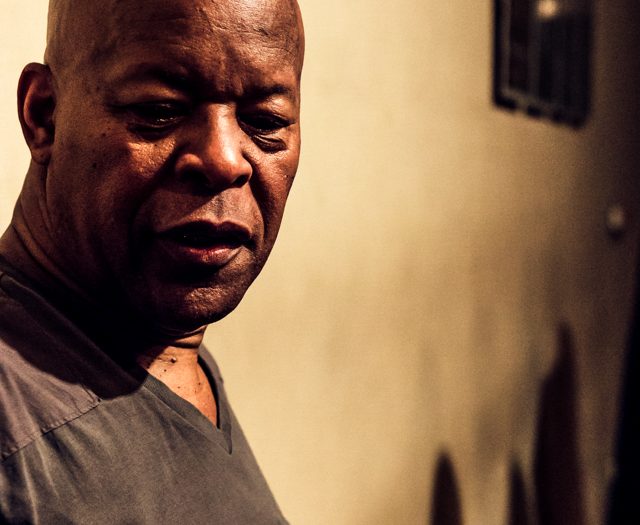Chimes is a new work directed and composed by American jazz drummer and poet William Hooker incorporating music, dance, and film. The performance features guitar, electronics and synths, percussion, and projections. The is music accompanied by dance dictated by the interaction between players and performed by Michael Battle.
Hooker has a long history of premiering work at Roulette. Beginning in 1988, his rich interdisciplinary performances incorporating dance, music, visuals, poetry, and historical texts have illustrated the Great Migration – the historical movement of African Americans from the American South to points north during the years of 1935–1950, the life of activist and writer James Baldwin, and the work of novelist Richard Wright. TOUCH: Soul and Service, the third in a series of multi-disciplinary performances which included 2018’s The Great Migration and 2016’s EVIDENCE: The Baldwin Suite was scheduled to premiere on March 15, 2020 and was the first show suspended due to the COVID-19 pandemic. Hooker shot a studio visit with Roulette TV in the weeks prior and Chimes will be his first concert at Roulette since.
William Hooker: drums, direction
Hans Tammen: electronics, guitar
Ka’a Davis: Acoustic Guitar
Theodore Woodward: synth, visuals
Michael Battle: dance
This performance is also available on YouTube and Facebook.
A body of uninterrupted work beginning in the mid-seventies defines William Hooker as one of the most important composers and players in jazz. As bandleader, Hooker has fielded ensembles in an incredibly diverse array of configurations. Each collaboration has brought a serious investigation of his compositional agenda and the science of the modern drum kit. As a player, Hooker has long been known for the persuasive power of his relationship with his instrument. His work is frequently grounded in a narrative context. Whether set against a silent film or anchored by a poetic theme, Hooker brings dramatic tension and human warmth to avant-garde jazz. His ability to find fertile ground for moving music in a variety of settings that obliterate genre distinctions offers a much-needed statement of social optimism in the arts.

